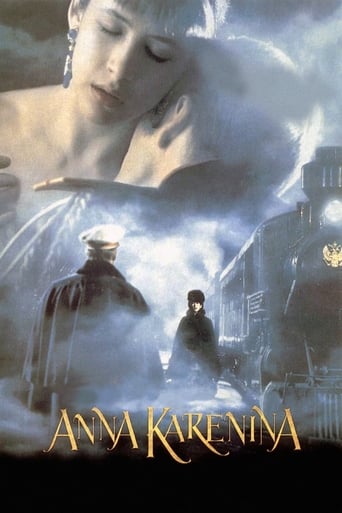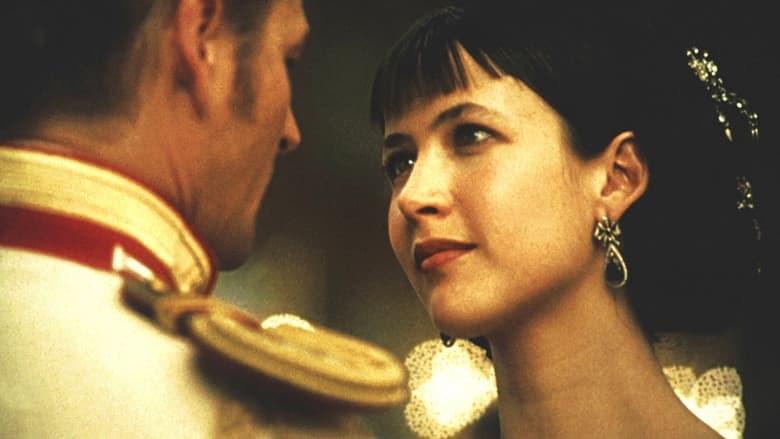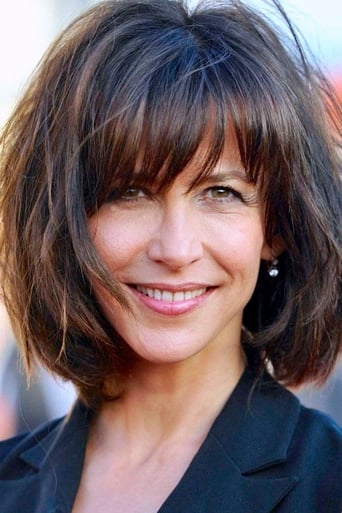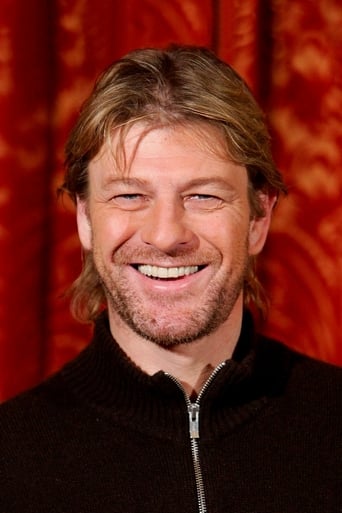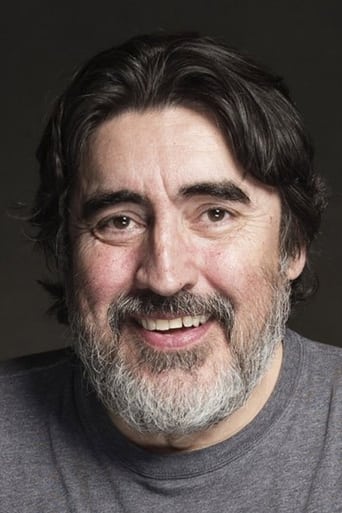Anna Karenina (1997)
Anna Karenina, the wife of a Russian imperial minister, creates a high-society scandal by an affair with Count Vronsky, a dashing cavalry officer in 19th-century St. Petersburg.
Watch Trailer
Free Trial Channels
Cast


Reviews
What a beautiful movie!
Great Film overall
It's a mild crowd pleaser for people who are exhausted by blockbusters.
It’s fine. It's literally the definition of a fine movie. You’ve seen it before, you know every beat and outcome before the characters even do. Only question is how much escapism you’re looking for.
Anna Karenina Film Review I think that this is an excellent movie. Audiences see how a strict social code dictates the way people live and the choices they make or in some cases don't make. While Anna does have an affair with Vronsky and breaks moral codes, the audience feels for her because she is trapped in a marriage with no way out. Anna is a tragic and condemned character because she is a superfluous women. Anna has wealth and privilege, but she is also bored and disregards the social values of that time (by openly having an affair with Vronsky). Anna was a character who was far ahead of her time. The themes of Anna Karenina include social norms, family and love. Social norms during that time wouldn't let Anna have a divorce from her husband so she could be with Vronsky. Anna suffered terribly for her choice to be with him. She was ostracized by the community, the Russian aristocracy, lost her husband and her son, Seryozha. Eventually Anna is driven to madness and commits suicide. The social norm was also the double standard between men and women. An example is Anna's brother, Stiva, who has an affair with a governess and yet, unlike Anna, faces no public scorn or humiliation. Vronsky also doesn't suffer nearly as bad as Anna. Vronsky is able to move within society with relative ease. The double standard only applied to gender. Women represented purity and any woman who had an affair and tainted that image faced serious repercussions as Anna experienced. The theme of family is evident throughout the film. Anna destroys her family because of her affair with Vronsky. Anna is forced to sneak back into her old home to see Seryozha on his birthday. On the other hand, Levin builds a family and his storyline concludes with him finding happiness. In the end, Anna has lost all meaning in her life without her family. Whereas Levin's life gained purpose with his marriage to Kitty. The final message is that family and happiness go together. Love is an important theme in Anna Karenina. Anna wasn't able to find love in her marriage to Karenin so she looks to her affair with Vronsky to find love which leads to her death in every sense of the word. There is a conflict between her love for Seryozha and Vronsky. Anna abandons her son to be with Vronsky and the consequence is that she is unable to love and trust anyone which was the one thing that she was looking for. There was a case of a women who was a mistress of one of Tolstoy's neighbors. In a jealous attack she threw herself under a train ending her life. This case is exactly like that of Anna Karenina. Both were mistress's who ended their lives due to the impact that their affairs had on their lives. These events in real life and the novel lead back to the double standard that women faced when having affairs and the repercussions of their actions (being ostracized by society).
This adaptation of the film is FAR superior to the 2012 version with Keira Knightley. If you're reading this and want to know which version you should watch, do pick this one. The "stylization" of the other film is just inappropriate for the subject matter. It makes the film look like a joke in comparison. Sophie Marceau is phenomenal as Anna Karenina. Keira Knightley? She doesn't capture the heartbreak as well as Sophie does, in my opinion. It saddens me to think that people will see that version and not this one. Just putting that out there. P.S. Why does IMDb force one to write ten lines? They are also attempting to correct "misspellings". If I spell something wrong, it's meant to be. Fascists.
Though not a faithful adaptation like any other until now, it's a very decent and well done with no doubt. Sophie Marceau played Anna beautifully and Sean Bean was very good as Vronsky. The only versions I watched about Leo Tolstoy's novel are this and the 2012 one, which I consider a gorgeous adaptation, despite the critics and public review, and also refreshing and interesting which it's what I admire from an new adaptation.This adaptation retains most of the Russian feeling and atmosphere, being filmed there, and also including some Russian dialog from time to time. It's something that inspires a lot of respect indeed, but that doesn't mean we should criticize the other adaptations for being filmed in Britain or America or, the most common complain nowadays, for having British accents.This one has British accents too, but because there are more well-known actors/actress appreciated by the public and most important because it was filmed in Russia with some mild Russian dialog, some parts for which other adaptations suffer has been overlooked here. I, as a viewer and a fan of movies, never ever paid attention that much to accents. If that's a good thing or not, it's up to every persons personal view, but for me it's a very silly and childish thing to judge a movie and the actors performances 70% based on what accents they perform. This brings in my view the theory that people get very bored in this life lately and prefer to pick up on silly matters in every aspect of his life. This only will downfall this world. One should learn to appreciate simple things more and pay attention to what matters.I recommend this one, for being a very decent adaptation, not all faithful but it doesn't matter in my opinion.The performances were great, the actors did a superb job, and Russia looks stunning. But I also recommend the 2012 version too. They are both brilliant in their own way, but warning: tell them apart and don't compare them. They are different. For me Keira was a perfect Anna Karenina. Sophie did a wonderful job too, but I love Keira more and so does my mother, who loves the book and this version, but admires the new one too.8/10
According to an earlier review, this movie is supposed to be "just plan awful." The writer probably meant "plain" instead of "plan," and that misspelling may be an indication of the quality of the review.There is much to be said for the viewpoint that this film version of Tolstoy's novel, starring Sophie Marceau, must certainly be one of the greatest versions ever produced.Tolstoy himself lived to see just the beginning of the era of the motion picture and was said to have been fascinated by the possibilities the new medium presented. If so, he would no doubt have been quite astonished at the beauty and the extraordinary quality of this rendition of his story about Anna Karenina. The production values are among the highest there could possibly be. The costumes, the cinematography, and the sets unlike earlier versions, the film was shot on location in St. Petersburg and elsewhere in Russia are at such a remarkable level that the action almost does appear to be really taking place in the Czarist period at the end of the nineteenth century.As for Sophie Marceau's mild French accent which the above-mentioned reviewer found so irritating it is quite likely that many upper-classes Russians of the period actually did speak with a French accent. It was not Russian but French that was the dominant language among the Russian nobility and aristocracy of the time for some, French was in fact their native language, since many of them never learned to speak Russian at all, except perhaps a few words and phrases they could use to communicate with the servants.What is perhaps most remarkable of all in this film is the utterly believable way that the behavior of the of characters is presented. Their motives are suggested with great subtlety, not in the somewhat simplistic tones of the (nevertheless still magnificent) MGM version of the film that starred Greta Garbo seventy years ago. Anna's husband is not a monster, for example, in this new version, but a rather pathetic, right-wing government bureaucrat with obsessively strict moral values. Moreover, the portrayal of Anna's behavior throughout the film, and especially in the final scenes, is a masterpiece of sympathetic psychological insight and understanding.This film is a for the time being, anyway neglected classic.

